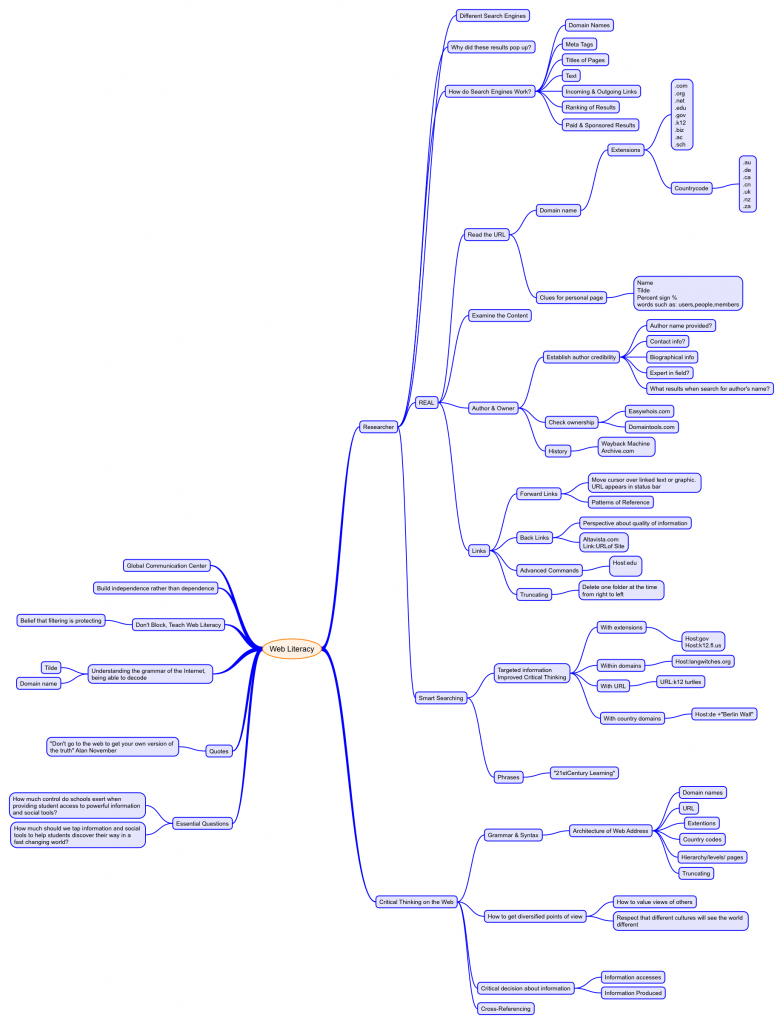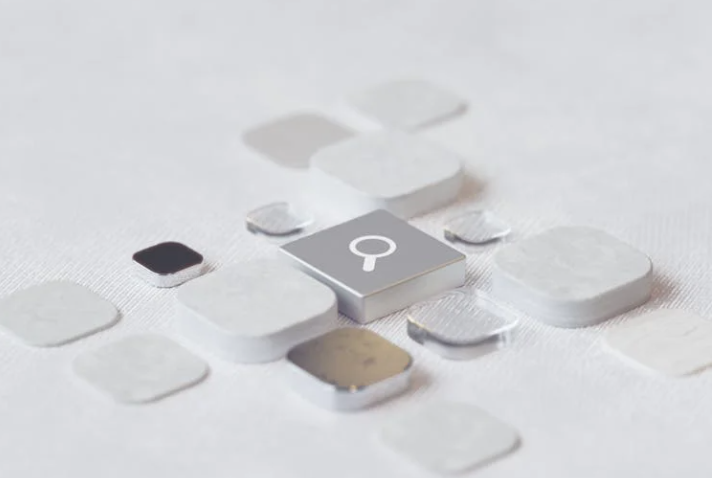What Does It Mean to Be Literate
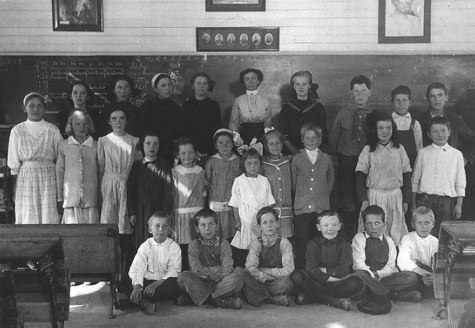
What does it mean to be literate? I am asking myself this question more frequently lately. Does being literate mean the same for this class?
Image by Historic Beverton
than for this class?
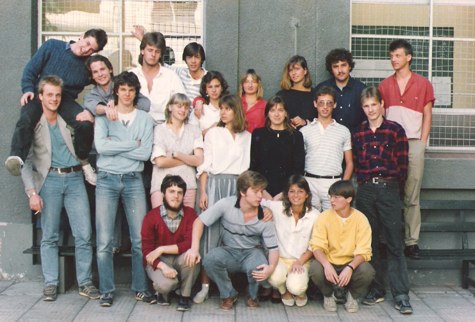
Class of 2022
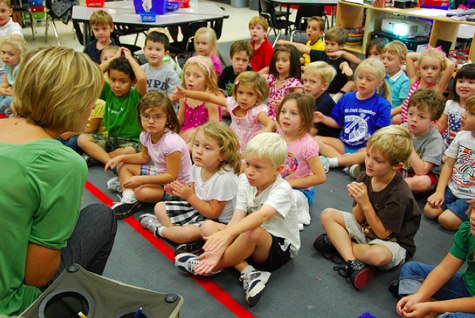
image by holtsman
The official definition from the dictionary defines "to be literate" as:
able to read and write
Tools and ideas to transform education. Sign up below.
There is change in the air though.
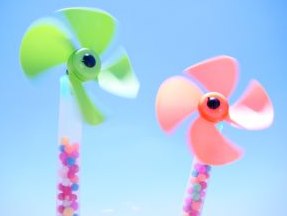
Being able to read and write seems to remain as the same definition. What is changing, at a rapid speed though, is the medium we are reading in and writing with. No longer is reading a handwritten letter or note, a printed sheet of paper, a poster, a telephone book, a newspaper, a magazine or a book the only medium of communicating information. Since having access to the Internet has become mainstream over 10 years ago, being able to find and read a website has expanded the notion of what it means to be "able to read". New forms of media are being developed and are allowing us to take information in , to be able to "read" in new shapes and forms. With the beginning of web 2.0, the shift from simply consuming (reading) information/content to having the ability of producing (writing) information and content has now expanded the notion of writing as well. The options, that are available to us humans, to communicate in another form, other than speaking verbally to someone face to face, has exponentially grown in the last 5 years. Being able to expand the reach of our communication has opened up opportunities that have not existed before in history.
So, what does that mean for the initial question of this blog post:
What does it mean to be literate?
I have written often on the Langwitches blog, how I see the concept of "Literacy" changing & expanding. I am reminded of the Norwegian video clip about the Medieval Help Desk, when one monk explains to another how to use, this new way of reading text, called a book. The monk had tremendous difficulty in grasping the concept of the book, compared to the scrolls he was used to until then.
What if that monk would have thrown the towel in and refused to become comfortable with the new form of reading and writing? Would he still be considered literate in an era where information and learning is mostly transmitted in a form of a book? What about his job, as a scribe of the church, to write on the scrolls? Would it soon become irrelevant?
As I have been busy in the last few months with workshops about "Blogging with Students", I am realizing that we can't just assume that every teacher is web "literate". Before we start talking about how blogging can support 21st Century skills for your students, we need to step back and make sure that the teachers are literate (enough) to be able to read and write through this medium called a blog!
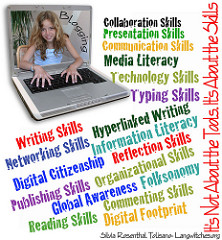
We need to start out by establishing a common vocabulary base and understanding how printed material differs from digital content. I ask teachers to start reading, reading, reading other blogs before attempting to blog with their own students. Basics, such as knowing how to search for blogs, recognize blog structures, searching within blogs, and experiencing the "mechanics" of how a blog platform operates are important "pre-reading and pre-writing" skills.
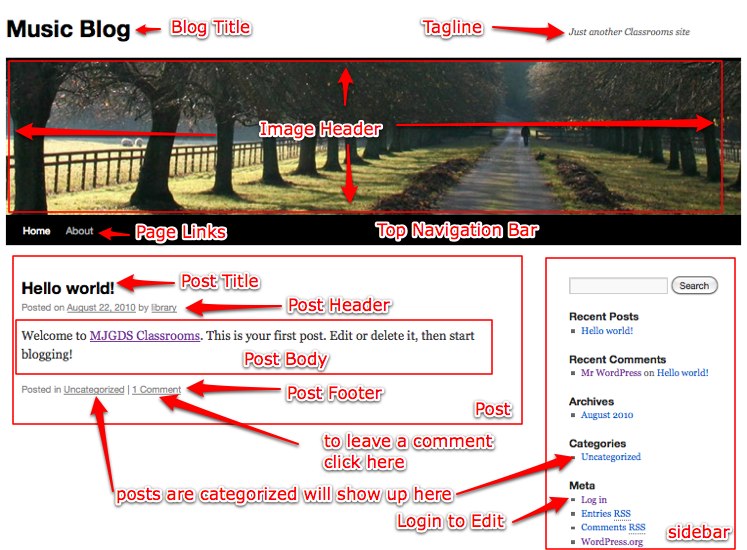
In addition to establishing common vocabulary, we also need to start a conversation about the importance to go beyond the traditional teaching of the traditional communication methods of reading and writing (through books and with paper) that still dominates in most of our schools. Otherwise our teachers and students will be like the monk in the movie clip above...being left "illiterate".
I would like to recommend the following book by Alan November titled Web Literacy for Educators. It is a wonderful resource in the process of becoming web literate. It goes beyond the basics and talks about being able to "read" and "write" as a researcher, understanding the grammar and being able to decode the structure of the web towards pushing us to being critical thinkers in a an online digital world.
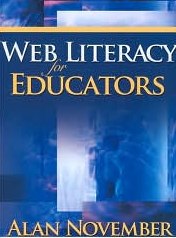
Below you will find my notes as I was reading Alan's book, taken with iThoughsHD Mindmapping app.
